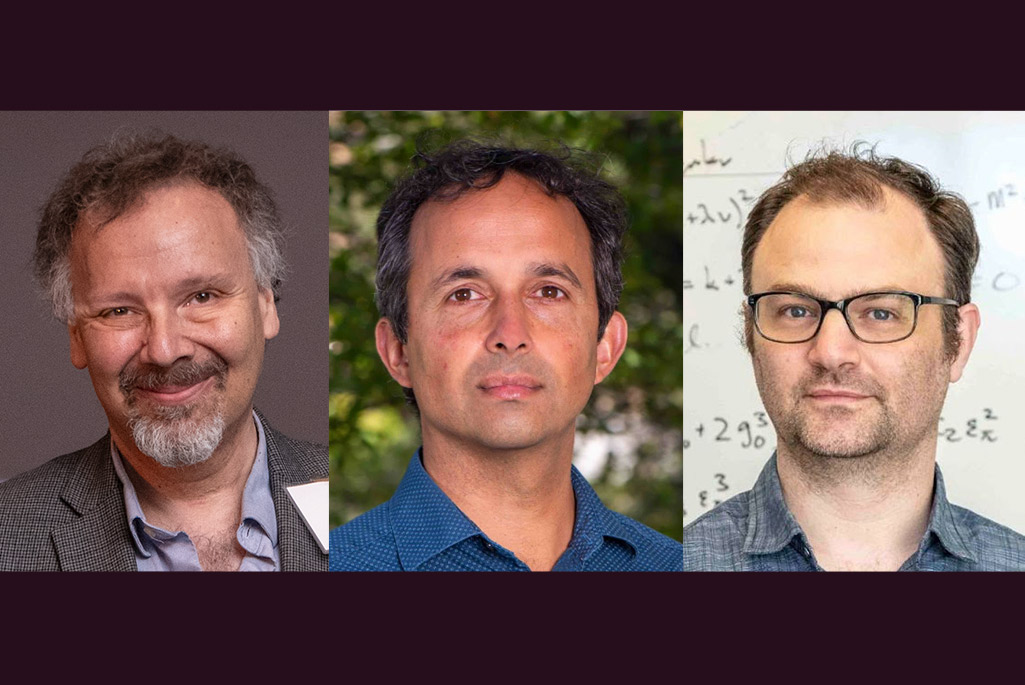Lee Bernstein, who leads the Nuclear Data Group in the Nuclear Science Division and is an associate professor in the UC Berkeley Department of Nuclear Engineering, was the recipient of the Director’s Technology Transfer Award. Lee’s team invented a novel method for producing the radioisotope Actinium-225 (AC-225), which was recently licensed to Northstar Medical Isotopes. AC-225, known as the rarest drug on earth, is important for targeting cancers, particularly late stage cancers. As mentioned in a DOE story, it can defeat even metastasized (Stage IV) cancers. In clinical trials treating late-stage prostate cancer patients, AC-225 cured the patients over three treatments. AC-225 and treatments derived from it have also been used in early trials for leukemia, melanoma, and glioma. Unlike programs pursuing other methods of producing AC-225, Lee’s method creates AC-225 that is unadulterated (by AC-227) and is more cost-effective.
Arun Persaud from the Accelerator Technology & Applied Physics (ATAP) Division and André Walker-Loud from the Nuclear Science Division were named the Physical Sciences Area’s “Inventors/Developers of the Year” by the Intellectual Property Office (IPO) at the Area’s PSA holiday town hall on December 20. The Inventor/Developer of the Year is an award given to the most prolific inventors and software developers in each area of the Lab, measured by the number of disclosures made to IPO. Arun and André tied for first place.
André develops software to understand the structure and interactions of protons and neutrons in terms of their more fundamental quark and gluon building blocks. These calculations need to be run on the world’s fastest computers, requiring state-of-the-art software libraries. André and collaborators developed their software libraries in the public domain to enable other researchers to also utilize them and to support reproducibility.
Arun and his team were selected to receive funding from the Base Annual Appropriations Technology Commercialization Fund, funded by the Department of Energy (DOE) Office of Fossil Energy and Carbon Management (FECM) and administered by the Office of Technology Transitions (OTT), to develop a real-time soil core scanner for carbon and other elements with Adelphi Technology Inc. This is a big step toward commercialization and greater adoption of the technology, which would enable soil carbon sequestration projects to be monitored and verified in a faster and more reliable manner.
“Proposals for DOE FOAs are often stronger if they include intellectual property, and in fact, some, like the Technology Commercialization Fund, make it a requirement,” said Lucian Sweitzer, the Intellectual Property Office’s technology commercialization associate who manages the Physical Sciences portfolio. “I encourage Lab staff to disclose their inventions and software in case their technologies are suitable for patent filing.”
Both invention and software disclosures from the Physical Sciences Area are up this year from last year: there were eight invention disclosures in FY23, up from six in FY22, and 11 software disclosures in FY23, up from five in FY22.
IPO offers consultation to any employee at the Lab who has a question about disclosing inventions and software, intellectual property, or entrepreneurship. Click on this link to request an IPO consultation.
As a reminder all software developed at the Lab should be disclosed to IPO, regardless of whether it will be open source, per Department of Energy requirements.
IPO also offers entrepreneurship training and resources for interested staff. To find out more, visit the IPO entrepreneurship website.
